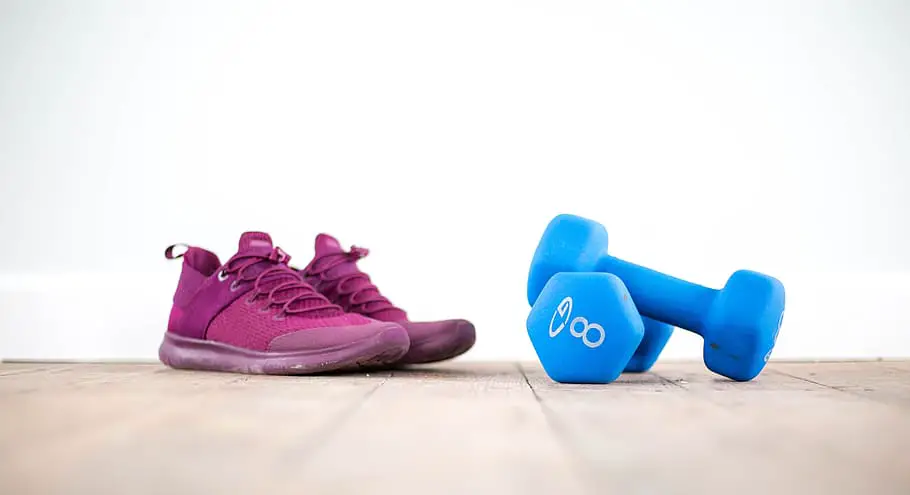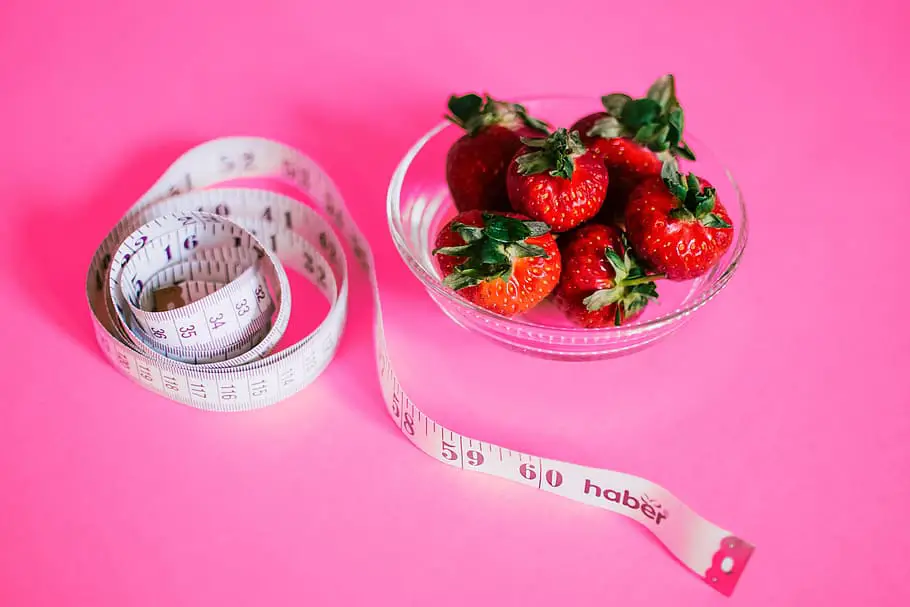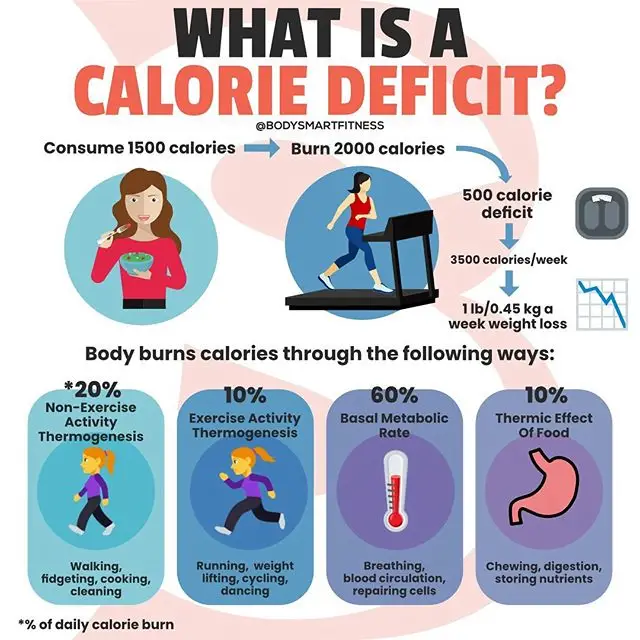Losing weight is a term used generally to refer to losing body fat and getting ripped.
While losing fat and gaining muscle are the opposing outcomes of working out, it’s hard to do both at the same time.
If you want to learn how to lose weight but not gain muscle, continue reading this article until the end.
Weight Loss Is Not Same As Fat Loss
While people usually use the term ‘weight’ as a synonym of ‘fat’ in the fitness world, the two mean completely two different things.
Your body weight comprises different variables including bone, muscle, water, fat, and stored glycogen.
This explains why it is possible to lose weight on detox and body cleanses because they help you get rid of the toxins that make up your body weight.
Though the two terms are different, most people simply want to lose fat when they talk about losing weight.
Despite the many myths such as starving and going on fad diets that are claimed to help you achieve your weight loss goals quickly; the only thing that can help you reduce your body fat is a calorie deficit.
What is a Calorie Deficit?
If you are not new to weight loss, you have probably heard about calorie deficit.
Yet, you may ask yourself what exactly is it and why is it required.
Calories are simply the units of energy you obtain from the foods and drinks you consume.
If you eat fewer calories than your body burns, you will create a calorie deficit.
The calories you spend each day including:
Thermic effect of food
Thermic effect of food are the calories your body burns when digesting and metabolizing food.
Resting energy expenditure
Also abbreviated as REE, these are calories your body consumes at rest for vital functions such as blood circulation and breathing.
Activity energy expenditure
These are the calories you use during activities such as exercises and all the different forms of physical activities.
So, if you supply your body with fewer amounts of calories than it needs to sustain these three components of calorie spending, your body will get into a calorie deficit.
If you do it regularly, you will be able to lose weight without building muscles.
On the other hand, if you provide your body with too many calories than it needs for the above functions, meaning that you consume more than your maintenance intake, then you will gain weight, a phenomenon called calorie surplus.
Why Do You Need to Burn Fat But Not Gain Muscles?
If you are new to the fitness world, many experts recommend you revolve your workouts around losing more fat without building muscles.
By doing this before incorporating other bodybuilding exercise plans, you bulk up your body.
This is because when you decide to add muscle, you will also add some considerate amount of fat even if you watch your calorie intake.
Dieting Tips On How to Lose Weight But Not Gain Muscle
Now that the goal is to losing weight and not gaining muscles, you need to choose a dietary strategy that will allow you to focus on burning unwanted body fat.
You also need to make sure you don’t lose the lean muscles that you already have.
For this reason, focus more on hitting your daily recommended intake of protein.
Cut out empty calories especially from processed sugars and avoid salty foods as well as low-quality fat.
Also, consider intermittent fasting. It has been found to help lose fat while maintaining muscle mass.
Intermittent fasting comes with many health benefits such as:
- Controlling insulin sensitivity
- Reducing triglyceride levels
- Enhancing the production of growth hormones
- Reducing inflammation
- Regulating the levels of hunger hormones
Intermittent fasting is highly flexible, meaning you can adapt to the new way of eating around your schedule.
Eat Plenty of Protein
Besides designing a diet plan that helps you lose fat, you also need to take into consideration your macronutrient percentage.
If you want to lose weight but not gain muscles, you need to eat a sufficient amount of protein.
But, keep it around 0.8 to 1.3 grams per pound of your body weight.
If you are overweight, use the healthy goal weight you have set for yourself. Overeating macronutrients will lead to it being accumulated as fat.
Protein helps enhance your basal metabolic rate, which helps your body break down more calories. It also helps repair muscles and boosts muscle growth.
Lastly, protein enhances satiety, which prevents you from overeating.
Maintain Your Muscles
When you are trying to lose fat, you also need to try and maintain the muscles that you already have by doing the same exercises you have been doing with the same intensity.
Your goal, other than losing weight, should be to keep training with the same volume.
Reduce Intensity or Frequency
Calorie deficits depend on how you break down fat. However, while doing this, you are also reducing the available body energy.
This means that you won’t be able to sustain your usual workout sessions because your energy levels are down.
So, if you keep the same frequency, volume, and intensity of your training resistance, your body will not be able to recover properly, and as a result, you will lose strength.
So either you reduce the intensity or frequency of your workouts or avoiding too much aerobics, you need to maintain the level of your fitness.
Also, you should not push yourself when your energy levels are down.
Prioritize Repair and Recovery
For any kind of workouts, and to achieve the desired results, active recovery should be on your list. The best form of recovery, however, is quality sleep.
The number of muscles you have will affect your muscle mass as you lose weight. It can either result in gaining muscles or losing a significant amount of lean mass.
Start Experiencing With Supplements
This new dieting formula that combines multiple weight loss benefits is backed by more than +190,000 satisfied customers from all around the world!
It uses a unique and high-quality blend of ingredients that accelerates your metabolism, curb your appetite and help you lose weight!
Best Exercises On How to Lose Weight But Not Gain Muscles

The perfect exercises to lose weight and not gain muscles are mainly compound training and cardio.
Aerobics or cardio is an effective exercise that has been proven to help people shed their extra weight while maintaining their muscle mass.
Find cardio exercises that suit you and you enjoy doing regularly.
The most common cardio for weight loss includes swimming, jogging, biking, and playing sports such as tennis.
Compound training workouts are also other sets of exercises to help you lose fat but not gain muscle.
The best compound training exercises for losing weight without gaining weight are: Presses, pull-ups, deadlifts, and squats.
These exercises hit many muscles at once making you burn the most calories in a short period.
Simple Recipe Ideas to Lose Weight without Gaining Muscle
Reducing your body fat requires you to have a proper diet.
For this reason, your exercise regimen should consist of weight loss workouts that don’t necessarily help you build muscles, along with protein-rich meals.
Below are some recipes that you try before your workout sessions to help you get the energy without adding too many calories to your diet.
Peanut Butter Granola Balls
For additional energy before working out, you should eat peanut butter granola bites.
The combination of whole grains, peanut butter, and chia seeds make it a great snack.
Moreover, it comprises of about 100 calories each, so you don’t have to worry about high calories.
Balsamic Chicken Salad
This recipe forms a protein-packed meal that uses greek yogurt instead of the mayo
Greek yogurt is well-known for its healthier qualities than mayo, and give the body an extra slice of non-fat dairy.
Eating this dish will help you lose weight without gaining muscles.
Tips for Consuming Fewer Calories for Weight Loss

Losing weight without gaining muscles depends on your calorie burn and calorie intake equation.
Achieving a calorie deficit doesn’t require you to make radical changes.
Here are some tips that can help you cut back on calories and lose weight but not gain muscle.
Eat home-cooked meals
Preparing your meals at home gives you complete control over the ingredients to include and the portion sizes as well as calorie consumption.
Cut back on processed foods
Highly processed foods contain excess amounts of fat, salt, and sugar, which can lead to overweight and obesity.
Avoid drinking your calories
Reducing your consumption of sugary drinks such as fruit juices, soda, and caffeinated drinks may allow you to cut a significant amount of calories from your daily diet.
The calories found in these drinks don’t offer fullness, and as a result, can lead to excess consumption and eventually weight gain.
Conclusion – Lose Weight But Not Gain Muscle
Now you know how to lose weight but not gain muscle.
Instead of going on a fad diet or opting for shortcuts that probably won’t get you the desired results in the long term, focus on how you can achieve a calorie deficit, which occurs when you burn more calories than you eat.
P.S: If you’re having a hard time noticing any results and want to quicken your weight loss journey, check out this powerful new dieting formula that combines multiple benefits to help you get the slim, sexy body you’ve always wanted!



